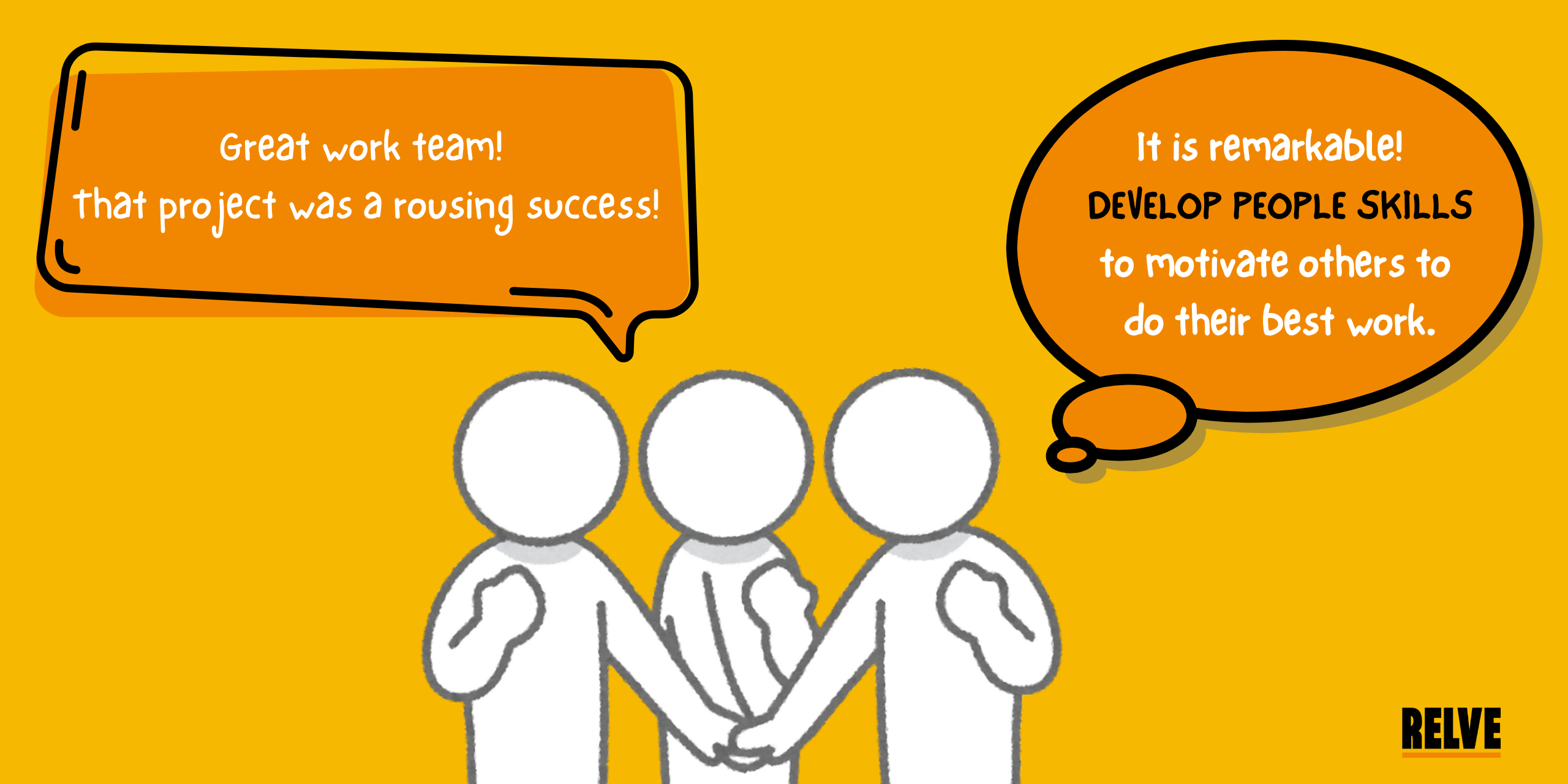What do Harvard, Carnegie Foundation and the Stanford Research Center have to say about success? According to their joint research, most job success hinges on soft skills. Today’s managers need to know how to develop people skills to nurture a welcoming work environment.
Soft Skills
Hard Skills
Developing people skills isn’t just about being able to talk to anyone – it’s about understanding people, building authentic relationships, and knowing how to navigate social situations with confidence (yes, even if you’re an introvert).
Whether you’re aiming for career growth, leadership, or just want to make friends without overthinking every interaction, this guide will help you master people skills and build a network that actually supports your success.
Alright, let’s get started.
What Are People Skills?
Before we talk about the process of how to develop people skills, let’s break down what they actually are.
People skills (also known as soft skills or interpersonal skills) include:
Understanding your own emotions is a crucial facet for developing people skills.
Why Are People Skills Important?
Strong people skills can change your life. Here’s why:
2. Assessing Your Current People Skills
Before jumping into how to develop your people skills, let’s see where you stand.
Take this Self-Assessment to Determine Your Soft Skills
Ask yourself:
If you answered “no” to most of these… congrats, you’re human! And that means you can improve.
3. Strategies to Develop People Skills
Now that we know where you stand, let’s talk about how to develop good people skills and actually enjoy conversations.
| Mastering Communication |
| Building Emotional Intelligence |
| Confidence & Charisma |
Note: Click on the headings to reveal the answers!
4. The Power of Networking: Why It’s More Than Just Who You Know
Networking isn’t about collecting business cards – it’s about building real connections.
| Why Networking Matters | |
|---|---|
| Opportunity Access | Opens doors to new opportunities such as jobs, collaborations, and mentorships. |
| Industry Insights | Provides valuable insights from different industries and keeps you informed. |
| Visibility | Helps you become more visible and recognized in your professional field. |
| Common Networking Myths Debunked | |
| “Only for Extroverts” | Introverts can network strategically and effectively with smaller, meaningful interactions. |
| “Just Business Cards” | Real networking is about nurturing long-term professional relationships—not just swapping info. |
| “I Don’t Need It” | Even freelancers or solopreneurs grow faster with the right connections and insights. |
5. How to Build a Strong and Supportive Network
Alright, now that we’ve covered how to develop people skills, let’s talk about actually building a network that supports your success. Because let’s be honest – your network can either be your biggest asset or just a list of people you awkwardly wave at during conferences.
- Reconnect with old colleagues: A simple “Hey, how’s life been treating you?” can open doors.
- Engage with work peers: Say yes to coffee chats, team outings, and knowledge-sharing sessions.
- Reach out to mentors: A 15-minute check-in call can deliver golden career insights.
- Attend industry events: Even virtual ones count.
- Join professional groups: Find like-minded communities on LinkedIn, Slack, Meetup, etc.
- Engage meaningfully: Don’t just show up—add insights and value.
- LinkedIn: Share thoughts, comment on posts, and reach out with value.
- Twitter & Reddit: Engage in relevant industry discussions.
- DMs & emails: A thoughtful, well-written message can lead to opportunities.
6. Maintaining and Nurturing Your Network
Great, you’ve built a network. Now, how do you keep it alive without sounding like you only reach out when you need a favor?
a) Keep in Touch (Without Being Annoying)
Networking isn’t about constant messaging – it’s about meaningful engagement.
- Check-in quarterly – A simple “How’s everything going?” works wonders.
- Share valuable insights – Send articles, book recommendations, or congratulate them on achievements.
- Support their work – Comment on posts, attend their events, and amplify their success.
b) Offer Value Before Asking for Favors
Want strong connections? Give before you take.
- Share job leads with someone in need.
- Offer an introduction that could benefit both parties.
- Help out without expectations – good karma always comes back.
7. Overcoming Common Challenges in Developing People Skills & Networking
Networking can be intimidating, especially if you’re introverted, short on time, or hate rejection. Let’s tackle these roadblocks head-on.
We also recommend setting up helpful reminders, even with a simple and easy-to-use time management tool to keep track of your progress.
8. Measuring Progress & Tracking Growth
How do you know if your people skills and networking efforts are paying off? Here’s what to track:
- Confidence Level – Do social interactions feel easier?
- New Connections – How many meaningful relationships have you built?
- Opportunities Gained – Has networking led to job offers, collaborations, or mentorships?
- Feedback from Others – Are people responding positively to your presence and communication?
Conclusion
Developing people skills and building a strong, supportive network isn’t just for extroverts or CEOs – it’s for anyone who wants to thrive in life and career.
Your soft skills development game plan should include these things:
- Learn how to communicate and listen effectively.
- Build emotional intelligence and confidence.
- Network with intention – quality over quantity.
- Nurture relationships (don’t ghost people).
- Overcome social anxiety by taking small, intentional steps.
And most importantly – have fun with it. Networking is about genuine human connection, not forced interactions.
